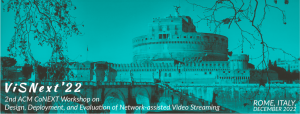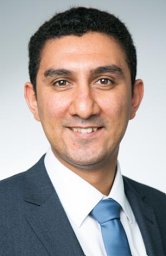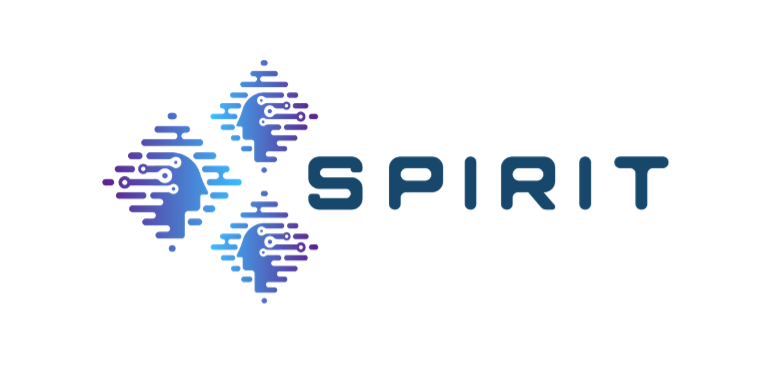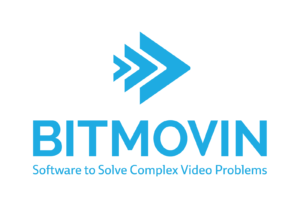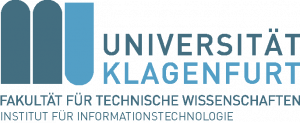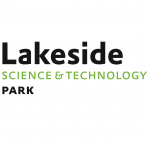6 – 9 December 2022, Rome, Italy.
ViSNext’22 Program
The workshop will take place on Friday, December 9, 2022, between 9:00 and 12:30. All times are in Central European Time (CET, UTC+1).
9:00-10:30, Keynote Speaker
Live Video Streaming through the ML Lens
Prof. Amr Rizk, University of Duisburg-Essen [slide]
11:00 – 11:15, Technical Session
Improving Fidelity in Video Streaming Experimentation on Testbeds with a CDN
Calvin Ardi (USC/ISI), Alefiya Hussain (USC/ISI), Michael Collins (USC/ISI), Stephen Schwab (USC/ISI) [slide, paper]
11:20 – 11:35, Technical Session
Multi-Preset Video Encoder Bitrate Ladder Prediction
Fatemeh Nasiri (INSA), Wassim Hamidouche(INSA), Luce Morin (INSA), Nicolas Dhollande (Aviwest-Haivision), Jean-Yves Aubié (IRT b<>com) [slide, paper]
11:40 – 11:55, Technical Session
Adaptive Media Streaming over IP Multicast (mABR): A Data Analytic Evaluation
Arsham Farshad (Applied Research, BT), Mike Nilsson (Applied Research, BT), Steve Appleby (Applied Research, BT) [slide, paper]
12:00 – 12:15, Technical Session
OTEC: An Optimized Transcoding Task Scheduler for Cloud and Fog Environments
Samira Afzal, Farzad Tashtarian , Hamid Hadian, Alireza Erfanian , Christian Timmerer , and Radu Prodan (AAU University) [slide, paper]
Call For Submissions
Delivering video content from a video server to viewers over the Internet is time-consuming in the streaming workflow and has to be handled to offer an uninterrupted streaming experience. The delay is particularly problematic for live streaming. Some streaming-based applications such as virtual events, online learning, webinars, and all-hands meetings require low latency for their operation. Video streaming is ubiquitous in a plethora of applications, devices, and fields. Delivering high Quality of Experience (QoE) to the streaming viewers is of crucial importance, while the requirement to process a large amount of data in order to satisfy such QoE cannot be handled with human-constrained possibilities. Artificial Intelligence (AI) and Machine Learning (ML) techniques can be leveraged to calculate expected network data rates, predict requested video contents and thus, perform content-aware encoding, predict flash crowd formation that impacts the overall network traffic, enable personalized content recommendations, understand a user’s viewing behavior, and enable more informed video caching decisions, and in several other ways. The second workshop on Design, Deployment, and Evaluation of Network-assisted Video Streaming (ViSNext) aims to bring together researchers and developers to satisfy the data-intensive processing requirements and QoE challenges of live video streaming applications through leveraging AI-based approaches. We warmly invite the submission of original, previously unpublished papers addressing key issues in this area, but not limited to:
- AI-based resource allocation for live streaming
- Using AI/ML techniques for optimizing Interactive Streaming and User-Generated Content
- The tradeoff between QoE enhancement and network overhead: AI approaches
- Using AI/ML at the network edge and the cloud for supporting video streaming
- AI/ML-enabled caching of video chunks
- Experience and lessons learned by deploying AI/ML algorithms for large-scale network-assisted video streaming
- Design, analysis, and evaluation of AI-based Adaptive Bitrate (ABR) algorithms for video streaming
- Network aspects in video streaming: cloud computing, virtualization techniques, network control, and management, including SDN, NFV, and network programmability
- AI/ML-based solutions for supporting streaming applications high-speed user mobility
- Analysis, modeling, and experimentation of WebRTC, Low-Latency DASH, and Low-Latency CMAF for DASH
- Reproducible research in adaptive video streaming: datasets, evaluation methods, benchmarking, standardization efforts, open-source tools
- AI/ML-based techniques for live streaming in 5G and 6G networks
- AI/ML-based techniques for improving infotainment QoE in automotive applications.
Submission Instruction
- Solicited submissions include both full technical workshop papers and white paper position papers. The maximum length of such submissions is up to 6 pages (excluding references) in 2-column 10pt ACM format.
- Papers must include author names and affiliations for single-blind peer reviewing by the program committee. Authors of accepted submissions are expected to present and discuss their work at the workshop.
Important Dates
- Paper Submission:
Sep. 17, 2022Sep. 24, 2022 (submit your paper here) - Notification of Acceptance: Oct. 18, 2022
- Camera-ready: Oct. 25, 2022
- Workshop Date: Dec. 9, 2022
Organizing Committee
Co-Chairs
- Farzad Tashtarian, Alpen-Adria-Universität Klagenfurt, Austria
- Eirini Liotou, Institute of Communication & Computer Systems (ICCS), Athens, Greece
- Mallesham Dasari, Carnegie Mellon University, Pennsylvania, USA.
- Christian Timmerer, Alpen-Adria-Universität Klagenfurt, Austria
Technical Program Committee
- Abdelhak Bentaleb, National University of Singapore, Singapore
- Hadi Amirpourazarian, Alpen-Adria-Universität Klagenfurt, Austria
- Hermann Hellwagner, Alpen-Adria-Universität Klagenfurt, Austria
- Jiangchuan (JC) LIU, Simon Fraser University, Canada
- M.H. Yaghmaee, Ferdowsi University, Iran
- Mallesh Dasari, Stony Brook University, New York
- Mohamed Hefeeda, Simon Fraser University, Canada
- Serhan Gül, Fraunhofer Heinrich Hertz Institute
- Gwendal Simon, Synamedia
- Xiangbo Li, Senior Software Engineer, Twitch
- Amir Varasteh, Siemens AG, Germany
- Alisa Devlic, Senior Research Scientist at SonyAI
- Samira Afzal, Alpen-Adria-Universität Klagenfurt, Austria
- Maria Torres Vega, Ghent University, Belgium
- Tim Wauters, Ghent University, Belgium
- Peyman S. Mashadi, Halmstad University
- Jeroen van der Hooft, Ghent University, Belgium
- Lucia D’Acunto, TNO, Netherlands
- Ravi Prakash, University of Texas at Dallas
- Hannaneh Barahouei Pasandi, Virginia Commonwealth University
- Ahmadreza Montazerolghaem, University of Isfahan
- Sergey Gorinsky, IMDEA Networks, Madrid, Spain
Keynote Speech
The workshop keynote speech will be delivered by Prof. Amr Rizk
Title: Live Video Streaming through the ML Lens
Low latency live video streaming is hard. It is, however, a pressing problem for many if not all of the live streaming social media platforms as there seems to be a tradeoff between QoE and the allowed delay budget. In this keynote, we will provide an overview of ML based methods that pave the way towards low latency live streaming. In contrast to the focused view on quality adaptation in ABR streaming this keynote will discuss different components of live video streaming systems that benefit from ML techniques. We will address key infrastructure-, as well as, application-specific concepts to achieve adaptivity and QoE robustness in live video streaming including encoding, available bandwidth prediction, user behavior prediction, caching optimization, data generation for training, online network/edge reconfiguration. Finally, as there is “no free lunch” we will conclude with drawbacks and pitfalls as well as open problems that might still benefit from ML-based approaches.
Amr Rizk, Professor of Computer Science (Networks and Communication Systems), University of Duisburg-Essen

